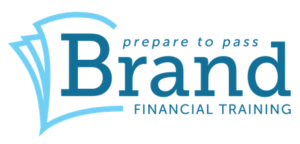Professional Paraplanner’s TDQ (Training, Development and Qualifications) series, is run in conjunction with key support providers, such as Brand Financial Training, and aims to test your knowledge of the financial services market, as part of your overall training goals and exam techniques.
The following questions, which can also be found in our June 2022 issue, relate to examinable Tax year 20/21, examinable by the CII until 31 August 2022.
You will find the answers separately under the Development Zone tab on the Professional Paraplanner website.
QUESTIONS
1. What would be a strong positive indicator that a firm’s strategy was working?
A. The firm has a clear vision that supports the fair treatment of customers
B. Internal posters for staff highlighting key messages
C. Evidence of target rewards in place for individuals achieving desired outcomes
D. Evidence of frequent staff meetings where strategy has been discussed
2. What characteristic would you associate with fixed interest securities?
A. Fixed redemption value
B. High risk
C. Variable rate of interest
D. Negotiable long-terms
3. Sandy and Brian are carrying out Inheritance Tax mitigation and are keen to use the ‘normal expenditure out of income’ exemption. Which of the following is most likely to qualify?
A. Paying net annual premiums of up to £2,880 into a personal pension for their son from spare income
B. Paying a £45,000 deposit on a house purchase for their daughter
C. Using the 5% withdrawal facility from an investment bond to pay the premiums on a joint life 2nd death life policy
D. Transferring their income producing investment portfolio to both children
4. Denise had an uncrystallised defined contribution pension fund when she died in 2021. Denise had nominated her husband David and her daughter Molly to each receive half of her fund. If Molly was aged 30 when Denise died, she is considered to be a:
A. dependant.
B. nominee.
C. successor.
D. beneficiary.
5. Julie has decided to pay the premiums on her life assurance policy by monthly instalments. This means that the premium she pays will have a:
A. handling fee
B. frequency loading
C. net premium adjustment
D. natural premium reduction
6. Tim has two unit trusts. He has received income from them as follows:
Unit Trust A Unit Trust B
Interest of £300 Dividend of £5,000
Assuming Tim has no other savings or dividend income and is a higher rate taxpayer,
how much tax will he pay via self-assessment in respect of the dividend income?
A. £225
B. £675
C. £975
D. £1,625
7. What is a major difference between a pre-funded risk based Long Term Care insurance (LTCI) contract and a long-term life assurance protection contract?
A. An LTCI contract always has an investment element
B. Under an LTCI contract premiums can only be paid as a single premium
C. Under an LTCI contract the benefit is payable when the individual satisfies the provider’s claim requirements rather than on death
D. Premiums under LTCI contracts cannot be reviewable by the insurer
8. Which of the following is a feature relating to the lump sum Bereavement Support Payment?
A. The lump sum will be paid over 18 months.
B. Claimant must have children under 19.
C. The payment will be retained on re-marriage.
D. Claimant must be actively looking for work.
9. Simon is buying a plot of land in Lincolnshire with the intention of building his own home using the services of an architect and a project manager. Simon should be aware that:
A. he is unlikely to be able to benefit from fixed rate deals.
B. the mortgage funds will be paid in one lump sum.
C. it is likely he can reclaim most of the VAT paid on materials.
D. planning permission is not required on self-build projects.
10. Your client Geoffrey watched a TV programme last night where the use of derivatives in investment portfolios were discussed. Although Geoffrey understood what derivatives could achieve, he didn’t understand what a derivative was. You tell him they are:
A. financial instruments used to provide market stability.
B. specialist investments to provide increased speculative opportunities.
C. financial instruments that are based on some other asset.
D. instruments that allows investors exposure to underlying assets through direct ownership.






























